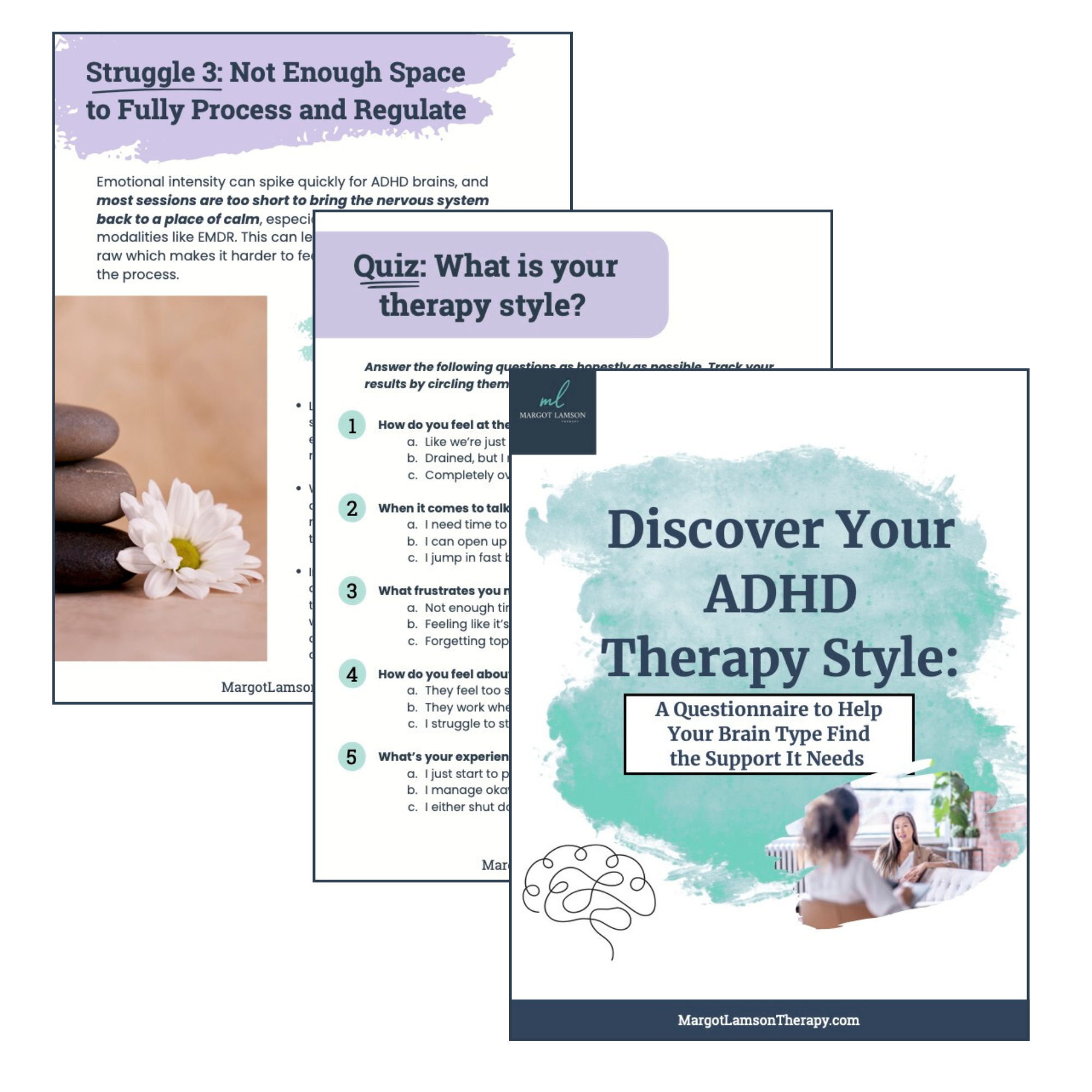
Start Living Your Possibility
Trauma Therapy in Washington, D.C., Virginia & Maryland
Holistic Healing for Motivated Individuals
Do you struggle with any of the following?
Perfectionist tendencies fuel procrastination and anxiety, trapping you in a cycle of self-doubt and overwhelm. You’re always putting other’s first, and it’s wearing you down.
"What-ifs" and past mistakes play on a loop in your mind, stealing your focus from the present and leaving you emotionally drained.
There’s a constant pressure to hide your true feelings or needs to avoid being seen as a burden, which creates loneliness and disconnection.
You didn’t feel seen as a kid, and it still feels that way.
Focusing on everyday tasks feels impossible, and you wonder if ADHD might explain why everything feels so overwhelming.
Past painful experiences still cast a shadow, showing up as intrusive memories, difficulty trusting others, or a constant sense of being on edge.
Creativity feels stifled by the tension in your body—tight shoulders, a racing heart, or a heavy chest—making it hard to express your true self.
You’ve come to the right place.
Margot Lamson, LICSW, (she/hers)
Welcome! I’m Margot, a dedicated and compassionate therapist specializing in trauma recovery. With over 12 years of experience, I help individuals who have found limited success with traditional talk therapy.
I offer a holistic approach, utilizing a variety of evidence-based brain and body interventions tailored to your unique needs. Together, we’ll create a safe space for you to explore your experiences, heal, and rediscover your strength.
You are not alone on this journey; I’m here to support you every step of the way.
Whether you’re an exhausted people-pleaser, a close to burnt-out professional with high-functioning anxiety, or just stuck…
I am here to help.
Therapy Approaches
-

EMDR Therapy
Learn how EMDR (Eye Movement Desensitization and Reprocessing) effectively helps process traumatic memories, reducing symptoms of anxiety and depression for lasting healing.
-

Sensorimotor Psychotherapy
Discover how Sensorimotor Psychotherapy integrates body awareness and movement to effectively address trauma and emotional challenges, promoting profound healing and self-regulation.
-

IFS
Explore how Internal Family Systems (IFS) therapy can effectively promote healing by helping you understand and integrate your inner parts, leading to greater self-awareness and balance.
-

Therapy Intensives
If you want to feel better faster, therapy intensives are for you! Intensives are extended sessions that provide facilitate deeper and quicker healing through focused therapeutic engagement.
Trauma-Informed & Culturally Inclusive Therapy
A safe, affirming space for LGBTQ+ and BIPOC clients. I am committed to ongoing learning and cultural humility in my practice.
In-person therapy in Washington, D.C.
Virtual Therapy: Healing from the Comfort of Home
Life is busy, and carving out time for therapy can feel like just another stressor. That’s why I offer virtual therapy—a flexible, accessible option designed to fit seamlessly into your routine.
Imagine settling into your favorite chair, a warm drink in hand, your pet by your side, and starting our session from the privacy of your own space. Many clients find it easier to open up when they’re in a familiar environment, free from the pressures of commuting or worrying about being seen at a therapy office.
Virtual therapy offers all the same benefits of in-person sessions, with added convenience and confidentiality. You can save time, avoid transportation hassles, and focus entirely on your healing. Our sessions will be held over a secure, HIPAA-compliant video platform, ensuring your privacy and safety every step of the way.
Ready to get started?
Here’s what to expect.
Book a free consultation: Call or email me to schedule a free 15-minute consult.
On the call: I’ll ask you about your goals, answer any questions you might have, and we’ll both make sure it’s a good fit.
Next steps: Join me for online or in-person therapy and begin your journey of growth and healing.
Take back control of your life.
Finally, Therapy That Makes Sense for Your ADHD Brain
If you've ever felt like you're "bad at therapy" or that sessions leave you more frustrated than helped, this guide is for you.
Discover your unique therapy style and learn why the right structure—not more effort on your part—makes all the difference.




